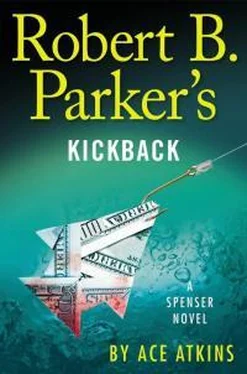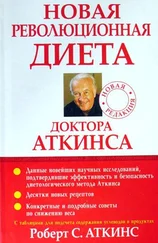“Blackburn.”
“No shit,” the kid said. “Me, too. Wait. I don’t know you.”
“Whatever,” the boy said. “Who the hell are you?”
“Dillon,” the kid said. “Dillon Yates.”
16
I drove back to my apartment and made a fire. I had bought a bundle of apple wood on a recent visit to Concord and used some small sticks for kindling. The fire was sweet and pleasant-smelling as I started to read through the files, leaving my Red Wings on the hearth to dry. Susan was having dinner with friends and so I made do with a block of feta, a half-pint of olives, and some Syrian flatbread from the East Lamjun Bakery. I set the food out on the coffee table on good plates, turned the Bruins match on mute, and opened my first Beck’s of the evening. There was no rule that you couldn’t enjoy yourself while you worked.
I made notes on a yellow legal pad as I read the report. The entire audit was about two hundred pages, most pages noting the expenditures from the Blackburn District family courts. Although not needed, Blakeney had left a summary of his findings. His name was nowhere to be found.
I got up and helped myself to a second Beck’s. I stared out the window over my sink at Marlborough Street. It was sleeting a bit, needles passing through the yellow blossoms of streetlamps. The street was empty. Some of the parked cars had this afternoon’s snow hiding their windshields.
I sipped some beer. I returned to my legal pad, making a few more notes. I continued to read. The Bruins were up by two goals. One of the players hip-checked another, starting a brawl. As if skating backward and precision with a stick weren’t enough, you had to be able to use your fists.
I got back to reading and drinking beer. I was so talented at my job, I could do both at the same time. I could even digest what I’d been reading. If there was one continuous theme to the report, it was payments to a company called MCC. Massachusetts Child Care, as noted in the summary. Monies for juvenile transportation, meals, detention. A lot of money. I stopped counting after four million.
I knew from the Blackburn teens that Scali would send kids to either a reform camp in Haverhill or Fortune Island in the harbor. From the audit, I found out that Scali was definitely in favor of the island facility. Nearly the entire budget for boys was spent on Fortune Island. Girls were sent to the place in Haverhill. Both facilities were run by MCC. And after two seconds of detective work on my phone, I learned that MCC was not state-owned. It was a private prison run by a corporation.
I said “aha” out loud and helped myself to a bit of flatbread topped with a wedge of feta and an olive. I drank some Beck’s.
The folks at MCC would certainly want Scali to keep up his commitment to Zero Tolerance. The company was his go-to kids’ jail. I didn’t have a law degree, but I smelled the start of an ethics violation.
Sheila Yates thought something hinky was going on in Blackburn. She was right. I think we had more than enough evidence for the good folks at Cone, Oakes to win their appeal for her son. Scali had screwed up. He’d denied Dillon his right to an attorney for a ridiculous charge. From other parents and kids, I found out this wasn’t an anomaly but his way of doing business. His breach of ethics in denying their rights to attorneys had helped MCC make a pile of cash.
If Dillon was released, I would write up a report and we could make a big stink with the state bar association. My client would be happy. Scali would have a lot to explain. And those behind his success would wring their hands.
I sipped some more beer. I had other cases to handle. Jobs that promised an actual payment. It had been months since the Heywood kidnapping. A lot of that fee had gone to flying to Paris with Susan. It cost a lot of money to eat well in the City of Lights.
An hour later, my phone rang.
“Oh, thank God you answered,” a young woman said.
“Most women say that.”
“It’s Beth.”
“Oh,” I said. “Hello, Beth.”
“I’m in jail,” she said. “My mom won’t answer her phone. I didn’t know who else to call.”
“What happened?”
“I got pulled over,” she said. “They found drugs in my car. It’s not mine. I swear to Christ, Spenser. I swear.”
“Of course it’s not,” I said. “You’re being punished.”
“For what?”
“For talking to me,” I said. “For introducing your friends.”
“What do I do?” she said. “Oh my God. My mom is going to completely freak the fuck out.”
“That sounds bad,” I said. “Where are you?”
She told me. I turned off the hockey game, grabbed my coat and hat, and laced up my slightly dry but much warmer boots. I left my feast on the table and closed the doors to the fire. It had smelled so sweet.
17
Early the next morning, I sat in a booth across from Iris Milford at The Owl diner.
“That’s pretty messed up,” Iris said.
“You bet.”
“Jamming up a kid for talking to you?” she said. “When will she go before Scali?”
“Sometimes it can take a week or longer,” I said. “That’s too long to be in holding. I got her an attorney. It’s my fault she’s in the bind.”
Iris looked dynamite early that morning. Too dynamite for Blackburn and for The Owl. She’d hung up a black overcoat on a hook attached to the booth. She had on a slim-fitting black dress and black boots. A necklace made of faux Roman coins hung from her neck.
“I met Judge Price’s wife.”
She asked me how that went. I told her.
“And this audit actually happened?” she said. “Because that would be public record.”
“Yes and no.”
“How can it be both?’
“It happened after the auditor was relocated to a different department,” I said. “He and Price had become friends. He wanted to see it through.”
“Did he file it?”
“No,” I said. “But I have it.”
“Can I see it?”
“On one condition.”
“That I don’t print anything until you’ve worked out all the details.”
“Wow,” I said. “You’ve done this sort of thing before?”
Iris nodded. The waitress walked up to us and we ordered breakfast. I decided on the Greek omelet with wheat toast and an orange juice. The waitress refilled our coffees before she walked back to the kitchen.
“What did it say?”
“You ever heard of Massachusetts Child Care Inc.?”
“Of course,” she said. “They got the contract when the old Fourth Street center closed. We did a whole series of articles about it. The place was more than a hundred years old. It was the original city jail and then became the juvie facility in the seventies. It was pretty awful. Place was falling apart. It had roaches and rats running around. Not the kind of place you wanted to put kids.”
“Did you cover the bidding process?”
“I don’t know if there were other bids,” she said. “A lot of people campaigned to have Fourth Street shut down. The Star was part of all that. We supported the closing and the state contracting with a licensed provider.”
I nodded.
“I know what you’re thinking,” she said. “But you didn’t see this place. It was best for the community to find other options. This place was like something out of Dickens.”
I drank some coffee. The diner smelled of bacon cooking and coffee brewing. Silverware clattered, guys in coveralls told jokes, and old men talked about the weather.
“Do you know how much money the county has been paying MCC?”
“We were getting to that when Judge Price died,” she said. “He thought the facility was costing too much. But we ran the numbers and did some interviews. MCC offered a fair rate for what they do.”
Читать дальше







![Дэни Аткинс - Время любить [litres]](/books/401165/deni-atkins-vremya-lyubit-litres-thumb.webp)




